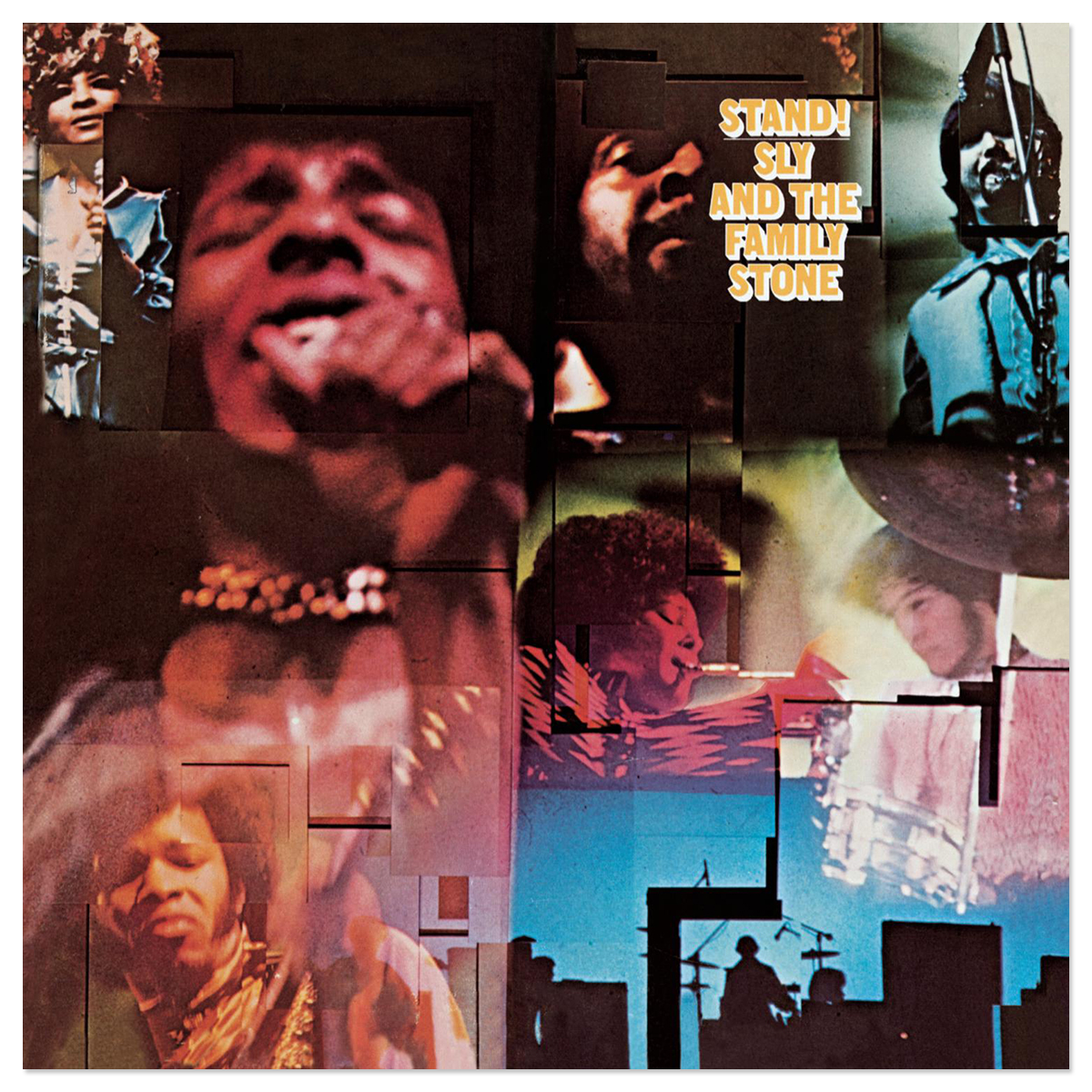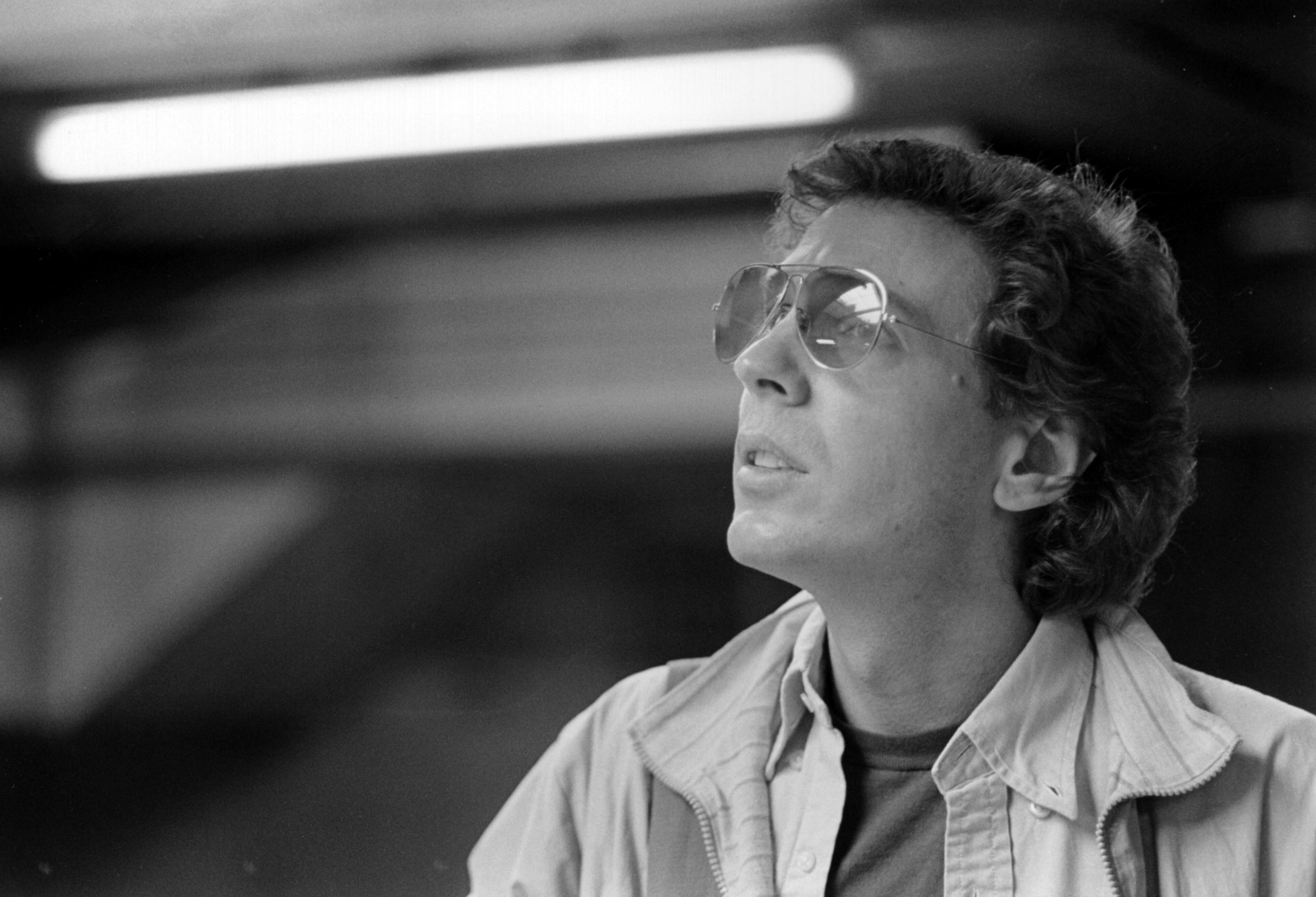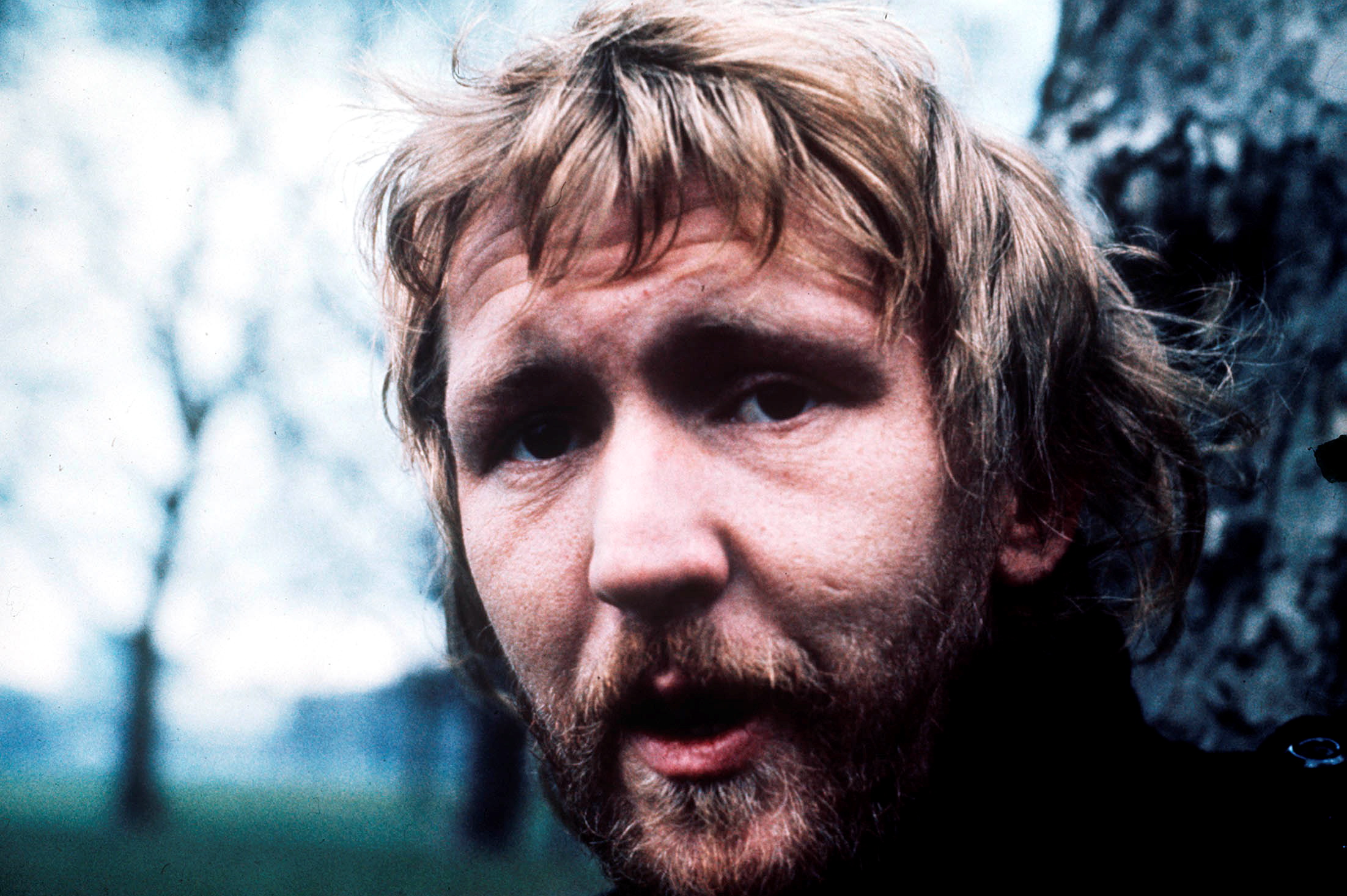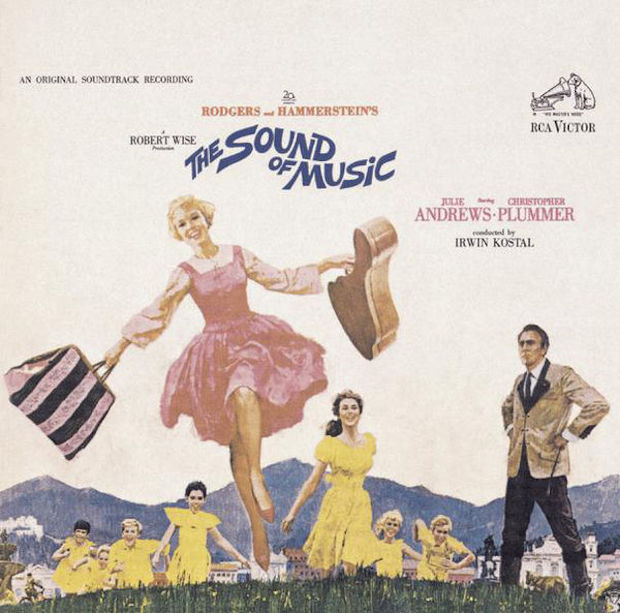Sometimes the goofy little deep dives that we music dorks do can take us into some far-flung places.
Apropos of nothing much besides wondering what the Budos Band had been up to lately, I found their upcoming album V going on pre-sale, claimed my own copy for the first week of April, and then proceeded to ruminate on the rest of their discography ... and then their place in the New York funk-revival scene that Daptone popularized ... and then where that particular scene positioned itself during a period where New York was scrambling to find the last few scraps of unmolested realness before they were torn down and replaced with condos you needed eight figures to afford.
After a while I was feeling pretty low, until I went back to the beginning of this anxiety hole and remembered I had a new Budos Band record coming in a month or so, and then I felt a bit better.
See, in big-deal existential terms, we're at a point where the future's looking bleak, the present feels ugly, and the past is on trial for excusing too much. But there's something about the kind of milieu that the music on Daptone embodies that feels energizing in the face of all that -- a retro-soul pantheon that doesn't sugarcoat the past, but remembers the tumultuous, often destructive times those sounds helped offer some relief from -- and does everything it can to keep a living conversation going with the idea of using that energy to be resilient in the now so tomorrow can stay possible.
That might be some highfalutin socio-cultural optimism from someone who needs to center it lest he lose his damned mind, but these cover versions from the Daptone family help put things in perspective: It's a big world, we can adapt if we work together, and history doesn't start and end with one generation. All that, and it's funky as hotboxing a boat-tail Riviera.
The Daktaris, "Give It Up Turnit Loose" (1998)
Before Daptone, there was Desco Records, the independent NYC label formed by Gabriel Roth and Philippe Lehman in the mid '90s. And before the two partners split in 2000 -- resulting in Roth forming Daptone and Lehman transitioning from the short-lived Soul Fire to the enduring Truth & Soul label -- they had built a major foundation of soul and R&B artists that would go on to define the new-classic sound for the '00s.
Lee Fields, Sharon Jones, and the Sugarman 3 all had singles and albums released on Desco before going on to bigger things with the founders' new labels, but one of the best groups on the label was done before Desco was -- sort of. The Daktaris' 1998 album Soul Explosion was a minor classic of Afrobeat revival, albeit one that was bound up in pseudonymous gimmickry and the label's mild disinterest in actually verifying whether this was an actual band of Nigerian musicians. (The fact that one of the album's titles -- Eltsuhg Ibal Lasiti -- is "It Is All A Big Hustle" spelled backwards was an answer hiding in plain sight.)
That this band took their sound seriously enough to bypass the nonsense around their promotion probably staved off most of the potential backlash; among the album's high points, their version of James Brown's "Give It Up Or Turnit A Loose" is the perfect midpoint between Brown's funk sound and the revolution that Fela Kuti staged with his own Afrobeat reinvention of it. Even the fact that they weren't actually a group of Nigerian musicians from the '70s couldn't stop them from cutting a whole album in that rare, Augusta-goes-Lagos form. But why would it? After all, many of the members of the group, previously involved in a J.B.'s-alike band called the Soul Providers, would be inspired to stretch their style out further en route to forming the Dap-Kings. And one of the horn soloists on the record, Martin Perna, was so energized by the musical ideas on Soul Explosion that he went straight from the Daktaris sessions to form a new Afrobeat group: Antibalas.
Joseph Henry & The Mighty Imperials, "I've Never Found A Girl" (2002)
There's a pair of what-ifs in the pairing of singer Joseph Henry and the backing band the Mighty Imperials: one intriguing, one sad. The latter involves the question of what kind of role Henry could've played in the Daptone/Truth & Soul revivalist movement if he hadn't passed away of cancer in 2005: Like Sharon Jones and Charles Bradley, Henry was a fantastic singer who never had a commercially released single until the Desco/Daptone connection put out a 7" -- 1998's "Who's the King? (You Know That's Me," a spirit-of-Memphis-'68 barnstormer that made a handful of essential rare-groove comps (word to Keb Darge) before an appearance on the Super Troopers soundtrack made it nearly as big a cult hit as the movie itself.
As for the Mighty Imperials, they went with Lehman to Soul Fire/Truth & Soul after the Desco split, renaming themselves the El Michels Affair and revamping their deep knowledge of Stax-style soul to become, among other identities, a tribute to the RZA's own hybridization of Southern R&B and New York hip-hop.
On this unreleased Desco 45 Roth quasi-reissued on Daptone, the what-ifs combine: This version of a 1968 R&B #2 by Stax great Eddie Floyd leaves serrated edges where they ripped out the original's sweet strings, going a bit harder and heavier and funkier, with Henry's weathered voice adding a level of grit that counters Floyd's youthful nuance. Now imagine if Henry was able to continue his career past this final single, and if the Mighty Imperials stuck with Daptone. The mind reels.
Sharon Jones & The Dap-Kings, "What Have You Done For Me Lately" (2002)
https://youtube.com/watch?v=E85-IjzM0Rw
I don't know how many copies of Dap-Dippin' With Sharon Jones & The Dap-Kings were sold in Minneapolis, but I know that one of those sales was to me, shortly after the album came out, and I was knocked flat by their remarkable decade-dialback version of one of the best songs Jimmy Jam & Terry Lewis ever wrote.
As a lifelong Twin Citian, I'm 100% into Janet's original recording, so don't ask me whether this is a case of which version's better -- I'm just grateful both versions can coexist. Janet's calm, poised dissection versus Sharon's had-it-up-to-here liberation, the immaculate Jam/Lewis living-synth future funk versus the Dap-Kings' almost pranksterish-sounding horn swoons and guitar twang, gleaming dancefloor neon versus smoke-hazed road house fluorescents -- they live in two different universes, with the presence of a steely backbeat and the sharp bite of the lyrics themselves the only clear unifying factors. Love 'em both.
Budos Band, "Aynotchesh Yererfu" (2005)
Their emergence on Daptone in the mid '00s gave them funk cachet, but the Budos Band were always just a bit different: They were definitely in the same ranks as the Dap-Kings and other groups like the Menahan Street Band in terms of being big, brass-drenched, dancefloor-quaking ensembles, but their subtle enthusiasms for metal and the more palpable influence of Ethiopian jazz gave them a distinct presence of their own.
It's most obvious in later Burnt Offering-era cuts like "Into The Fog" and "Magus Mountain," where their horn sections blast out chords of doom that could sound right at home on a Testament record or in Mulatu Astatke's band, but an actual Ethio-jazz cover on their debut album is the clearest line. Samuel Belay's 1973 song "Aynotchesh Yerefu" got wider exposure outside of Ethiopia when it appeared on Volume 8 of Buda Musique's revelatory Éthiopiques series in 2000, and you can hear in the original version just where the Budos got a few of their enthusiasms; the interplay of organ and horns in the original is probably going to be the most familiar element to resonate through the Budos' entire discography.
But the Budos already found their own twist on it by the time they put it to tape; at its simplest, you could call it "like this, but more," but they also give themselves room to vamp off what they're given, translating the original's fluttering vocal melodies into exclamatory brass riffs and boosting the levels on, well, everything.
Menahan Street Band, "Going The Distance" (2008)
Here's a pop-culture confession: I still haven't seen Rocky. I saw parts of Rocky IV when it was in heavy cable-TV rotation, and I thought it looked stupid -- I was the kind of prematurely cynical child who thought the "evil Russian" cliche was obnoxious -- and a general antipathy towards Stallone movies followed me throughout life until I got a chance to watch Creed on an airplane and thought it was fantastic.
So there you go. I do, however, appreciate Bill Conti's score for Rocky, which does enough on its own to tinge my impressions of Frank Rizzo-era Philadelphia as much as Teddy Pendergrass, Steve Carlton, and Blow Out do. Antibalas/Dap-Kings/Budos Band/El Michels Affair supergroup Menahan Street Band, however, are very much Brooklyn -- Sampled By Jay-Z levels of Brooklyn -- so hearing them turn the dramatic crest of "Going The Distance" into a heated slow burn does take the song out of Philly, and maybe the Philly out of the song, placing Rocky in a 1968/2008 Venn diagram and reimagining the titular fighter's training montage as vintage Joe Bataan Latin soul. Contenders can come from anywhere.
Naomi Shelton And The Gospel Queens, "What Is This" (2009)
Gospel veteran Naomi Shelton earned wider attention for bridging the Southern church and the NYC club scene, and the first Naomi Shelton And The Gospel Queens album on Daptone, 2009's What Have You Done, My Brother?, is the kind of record that makes the gospel-soul lineage so upfront and alive that even agnostics can catch feelings.
The album on the whole mixes originals with a strong selection of traditional and vintage gospel numbers -- concluding, in a nod to one of the greatest gospel singers to ever go secular, with a version of Sam Cooke's "A Change Is Gonna Come" that feels like a warm bath in a chilly room -- but it's the opener, "What Is This," that first grabs your attention. As written and performed by Willie Morganfield in 1965 -- around the same time his cousin McKinley was blowing minds at the Newport Jazz Festival for a second time -- "What Is This" is run through with the kind of haunting euphoria that comes with a disbelief being rapidly eroded, and it's a euphoria that Shelton makes into her own, a contagious spirit for communal experience.
The Sugarman 3, "Dirty Water" (2012)
Neal Sugarman is one of the most important members of the Daptone family, as a co-founder of the label and sax player for the Dap-Kings who's also provided session work for everyone from Amy Winehouse to Nas to Quincy Jones. His group The Sugarman 3 was a funky instrumental act that had a strong three-album run from '98 to 2002 on Desco and Daptone before Neal's other gigs took precedence, but 2012's What the World Needs Now was a low-key, high-living comeback effort that picked up right where they left off -- a holistic version of funk that came from the 1960s tradition of being able to play anything of any genre. So along with some scorching originals ("Witches Boogaloo" might be the best song Booker T. & the M.G.'s never cut with King Curtis), they go Bacharach-breaker on the title track, give J.J. Jackson's "But It's Alright" a thorough Mar-Keying, and best of all (if likely looked at askance by Sawx-loathing fellow New Yorkers), this version of the Standells' "Dirty Water" that makes the route from Boston to Memphis a few hundred miles shorter.
Charles Bradley, "Changes" (2013)
You should know this one already whether you've just binge-watched Big Mouth or (like me) you're in that underserved '70s metal/classic-soul crossover demographic. Though I still envy those folks who are hearing this for the first time: Maybe the best cover version done by anybody on the entire Daptone label, more faithful than you expect to the Black Sabbath version's mournful spirit yet so thoroughly transcendent of the original that it can be hard to go back to it.
Losing Charles Bradley and Sharon Jones in the span of less than a year was devastating -- and before they ever had a chance to do a modern-day King & Queen à la Otis and Carla, at that -- but thanks to Daptone, they left us so much to remember them by.






